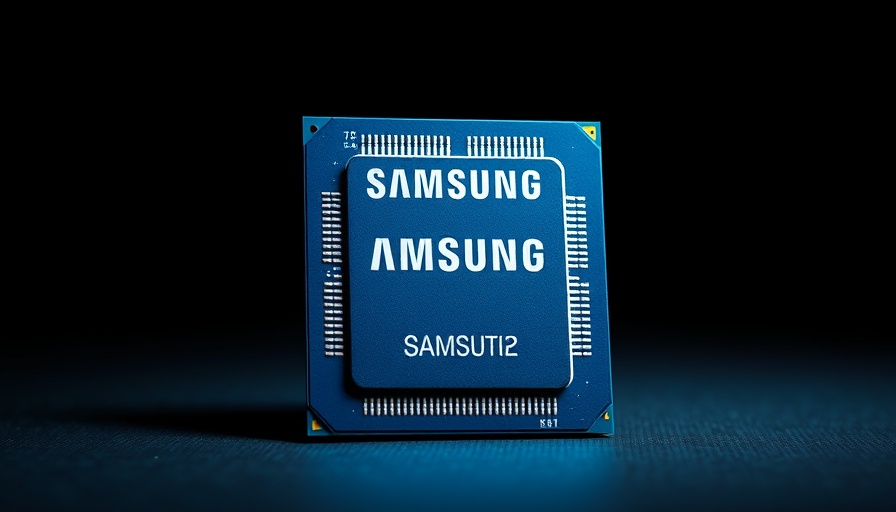
The Impact of International Trade on Samsung's Chip Production
In the latest development of the ongoing US-China trade tensions, Samsung Electronics is facing significant obstacles as the US Commerce Department has revoked key licenses that allow the tech giant to upgrade and expand its chip manufacturing operations in China. Alongside Samsung, SK Hynix, another major player in the semiconductor industry, has also been impacted. These changes escalate the existing challenges both companies face amid geopolitical strife, influencing not just production capabilities but also the global chip supply chain.
What Does This Mean for Samsung?
The revoked licenses specifically prevent these manufacturers from utilizing new equipment in their Chinese factories. Samsung, which primarily produces legacy chips in China, will not be able to modernize or expand its production capabilities. While this doesn't affect current manufacturing operations immediately, it poses a significant risk for future sustainability. Should existing equipment fail, Samsung will find itself unable to replace crucial machinery, jeopardizing the efficiency of their plant.
The Broader Picture: U.S. Strategy in Semiconductor Production
The US government's decision reflects its broader strategy to curb China’s advancements in high technology, particularly in the semiconductor sector. The US holds a critical position in the global chip industry, offering necessary licenses for equipment that is vital for chip production. This move aims to shift chip production away from China and limit the country’s ability to produce advanced semiconductor technology, thus tightening the constraints on its burgeoning tech industry.
Looking Ahead: Challenges and Adaptations
Samsung and SK Hynix must navigate this restrictive environment carefully. As they look to adapt, this scenario emphasizes the need for diversifying production locations and investing in advanced manufacturing strategies. The current limitations serve as a reminder of how intertwined global supply chains are with international relations, prompting questions about the future of electronics and technology markets as major corporations grapple with these challenges.
Final Thoughts
The revocation of manufacturing licenses is more than just a regulatory hurdle; it highlights the shifting tides of power in global manufacturing, projecting the fragility of international collaboration in technology. As businesses like Samsung adjust to these changes, the implications will resonate throughout the global economy.
 Add Row
Add Row  Add
Add 




Write A Comment